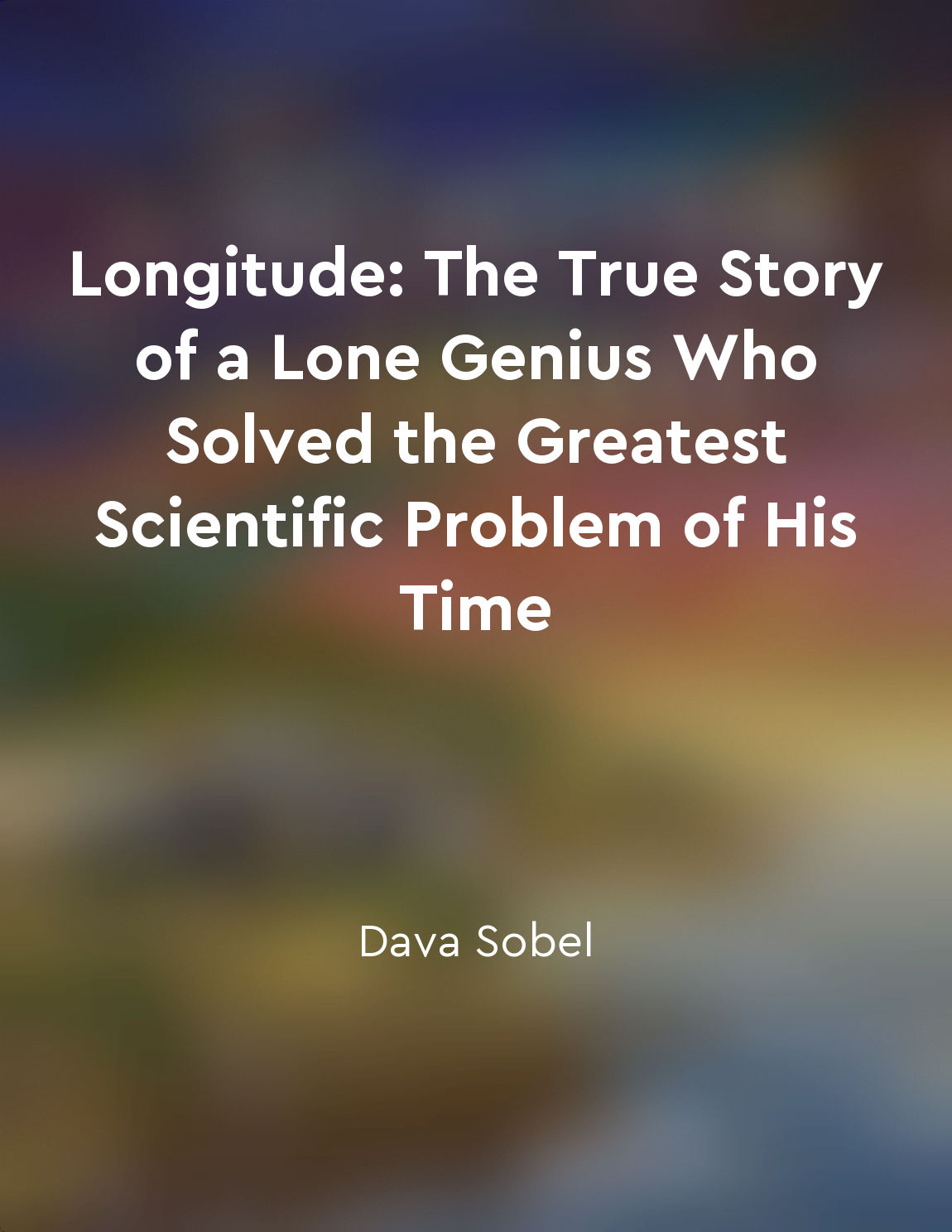Lasting impact on maritime history from "summary" of Longitude: The True Story of a Lone Genius Who Solved the Greatest Scientific Problem of His Time by Dava Sobel
The quest for an accurate method of determining longitude at sea was a problem that plagued sailors for centuries. Without a reliable way to pinpoint their location on the vast ocean, sailors were at the mercy of unpredictable weather and treacherous waters. Countless lives were lost, and valuable cargo went to waste due to the inability to accurately navigate the seas. The concept of determining longitude was not a new one, but previous attempts had fallen short of providing a practical solution. It was not until the lone genius, John Harrison, came along that a viable method was finally developed. Harrison's invention of the marine chronometer revolutionized navigation at sea and had a lasting impact on maritime history. By accurately measuring time at sea, sailors were able to calculate their longitude with unprecedented precision. This breakthrough allowed ships to navigate with confidence, significantly reducing the number of shipwrecks and improving the efficiency of trade routes. The marine chronometer became an essential tool for sailors around the world, forever changing the way they navigated the open waters. Harrison's invention not only saved lives and cargo but also ushered in a new era of exploration and expansion. With the ability to confidently navigate the seas, sailors were able to reach distant lands and establish trade routes that connected civilizations across the globe. The marine chronometer became a symbol of progress and innovation, solidifying its place in maritime history. The impact of Harrison's invention can still be felt today in modern navigation systems and technology. The marine chronometer laid the foundation for future advancements in maritime navigation, shaping the course of history for generations to come. John Harrison's legacy as a lone genius who solved the greatest scientific problem of his time will forever be remembered as a pivotal moment in maritime history.Similar Posts
Historic contexts for understanding length
Understanding length in historical contexts requires a deep dive into the ways in which people in the past perceived, measured,...

Maritime safety at stake
The safety of seafarers has long been a concern for sailors and navigators alike. Without an accurate way to determine their po...
Harrison's son continued his father's work after his death
After John Harrison passed away, his son William Harrison took on the responsibility of carrying on his father's work. William ...
The search for a solution spanned centuries
The quest to determine longitude at sea consumed the energies of scientists, astronomers, and navigators for centuries. The pro...
Wars have transformed nations
Throughout history, wars have played a pivotal role in shaping the fate of nations. The impact of conflicts on nations is profo...
Loses machine to Morlocks; plans second journey to retrieve it
The Time Traveler had encountered a group of subterranean creatures known as the Morlocks, who lived underground in the darknes...
The adoption of the metric system was not without controversy
The metric system, proposed as a universal system of measurement, faced considerable opposition and controversy in its adoption...
Harrison's clocks revolutionized global navigation
For centuries, mariners struggled to accurately determine their longitude at sea, often resulting in disastrous consequences. T...
